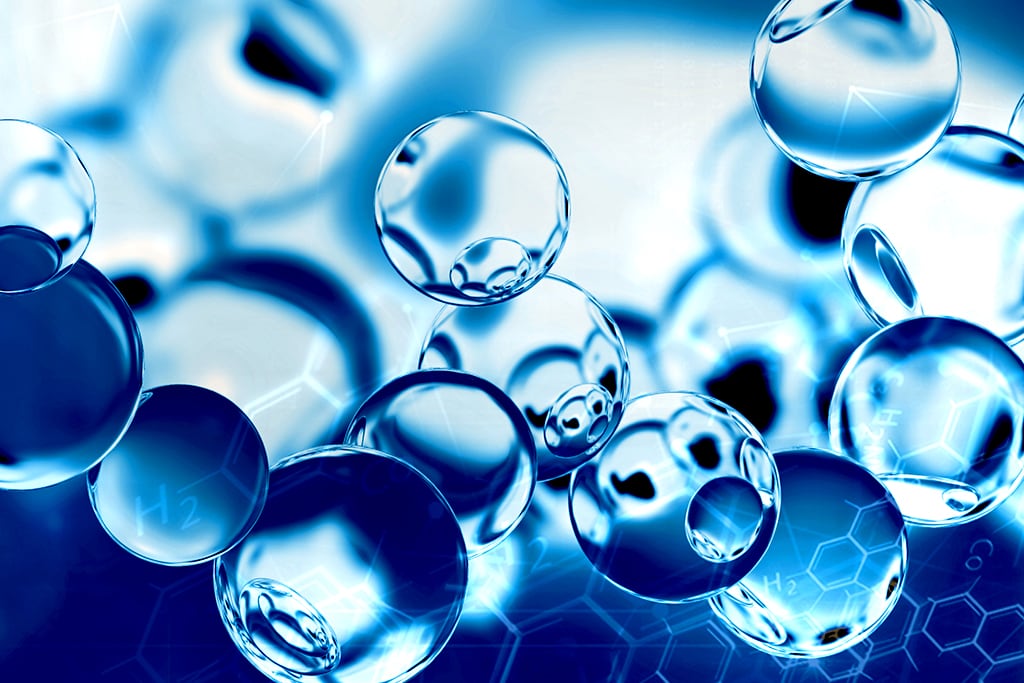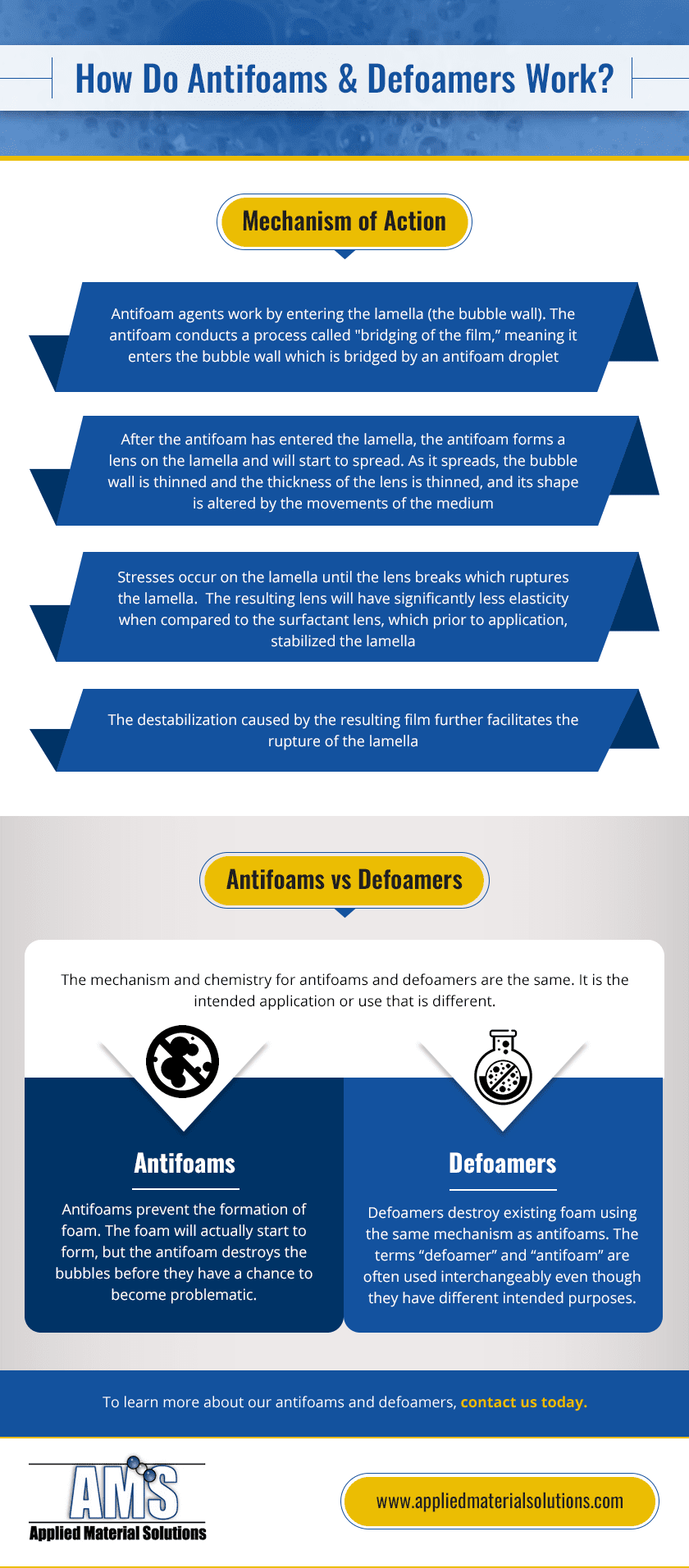How Defoamers Enhance Efficiency in Manufacturing and Production
How Defoamers Enhance Efficiency in Manufacturing and Production
Blog Article
The Function of Defoamers in Enhancing Item High Quality and Performance
Defoamers serve as crucial ingredients that mitigate this issue, guaranteeing smoother production process while improving the visual and useful qualities of the last items. The selection of the appropriate defoamer can be vital to accomplishing ideal results, increasing vital inquiries concerning solution compatibility and performance metrics that warrant further exploration.
Recognizing Defoamers
Comprehending the function of defoamers is vital for keeping product high quality across different markets. Defoamers are chemical additives created to stop the development and reduce of foam in liquid systems, which can negatively impact processes such as mixing, loading, and surface area stress. Frothing can lead to inefficiencies, product flaws, and compromised aesthetic charm, making defoamers an essential element in manufacturing procedures.
In commercial applications, defoamers aid to improve item uniformity and stability. In the paint and layers industry, foam can interfere with the application process and the final surface. Similarly, in food and drink production, extreme foam can hinder bottling and packaging effectiveness (defoamers). The effective use of defoamers not only ensures smoother production processes however likewise adds to exceptional item efficiency.
Furthermore, the option and solution of a defoamer need to line up with particular application requirements, such as compatibility with other components, efficiency under varying temperature and pH problems, and potential regulatory restraints. Inevitably, comprehending defoamers' functions and their significance in numerous formulas is essential for enhancing production and making certain the finest end items.
Kinds Of Defoamers
Defoamers can be categorized into numerous types based upon their structure and device of activity. The key kinds consist of silicone-based, non-silicone organic, and inorganic defoamers.
Silicone-based defoamers are amongst the most efficient, largely as a result of their capacity to spread quickly on the liquid surface area and interfere with foam development. Their distinct chemical structure enables exceptional security, making them suitable for high-temperature applications and environments with varying pH levels.
Non-silicone organic defoamers, typically made up of natural oils or fats, are valued for their biodegradability and lower poisoning. These are usually made use of in food and beverage applications where security and ecological influence are extremely important.
Inorganic defoamers, which include compounds like talc or calcium carbonate, act by increasing the thickness of the liquid, thus decreasing foam security. They are typically used in commercial processes where compatibility with other materials is not an issue.
Each kind of defoamer has unique advantages and restrictions, enabling for tailored services relying on the specific lathering concerns experienced in numerous applications. Comprehending these differences is critical for optimizing performance and attaining wanted product top quality.
Applications Across Industries
Countless markets leverage defoamers to improve item quality and operational performance. In the food and beverage market, defoamers are vital in procedures such as brewing and dairy products production to stop foam formation, which can cause inadequacies and item disparity. By controlling foam, suppliers can ensure far better return and a much more uniform item.
In the pharmaceutical sector, defoamers play a crucial function in the formulation of liquid medicines, where too much foam can hinder mixing and precise dosing. Their usage assists preserve the stability of the formulas and helps with smoother production processes.
The paint and finishes sector also depends on defoamers to boost the performance of items throughout application. By decreasing foam, these ingredients make certain a smoother coating and boost the aesthetic top qualities of the last item.

Benefits of Making Use Of Defoamers
While the application of defoamers differs across sectors, their benefits constantly enhance item quality and process effectiveness. One significant benefit is the decrease of foam development throughout producing processes, which can or else cause manufacturing hold-ups and variances in product high quality. By reducing foam, defoamers make it possible for a smoother circulation of materials, facilitating much more efficient operations and minimizing the likelihood of equipment breakdowns.
Furthermore, the usage of defoamers can improve the look and texture of final products. In fields such as layers, paints, and food processing, too much foam can jeopardize the visual aesthetics and overall quality, while the ideal defoamer application guarantees an uniform coating and preferable attributes. Defoamers can add to cost savings by decreasing waste throughout manufacturing and maximizing the use of raw materials.

Picking the Right Defoamer
Choosing the best defoamer is critical for enhancing manufacturing processes and guaranteeing item top quality. The choice of defoamer affects not just the efficiency of foam control yet likewise the general performance attributes of the end product. Factors to consider consist of the sort of application, the chemistry of the formulation, and the ecological problems under which the item will certainly be made use of.
Various industries may call for particular defoamer kinds, such as silicone-based, organic, or polymeric defoamers. Understanding the compatibility of the defoamer with the key components is vital to prevent unfavorable responses that might compromise item her latest blog stability. Additionally, the defoamer's effectiveness in different temperatures and pH degrees need to be evaluated to make certain constant performance.
Examining the defoamer in small-scale get more applications can give important understandings into its performance and viability. Consideration of regulative conformity, especially in food, drugs, and cosmetics, is paramount in choosing a defoamer. Inevitably, an extensive analysis of these factors will bring about the selection of a defoamer that not only manages foam effectively but likewise boosts the quality and efficiency of the end product.
Verdict

In conclusion, defoamers are essential additives that dramatically boost product quality and performance across different markets. By successfully lowering foam development, these representatives not just boost functional performance but also add to the aesthetic and practical stability of products. The calculated choice and application of defoamers cause cost savings, enhanced resource use, and increased customer satisfaction. Overall, the importance of defoamers in commercial procedures can not be overemphasized, as they play a crucial function in achieving premium and constant outcomes.
Foaming can lead to inefficiencies, item flaws, and jeopardized aesthetic allure, making defoamers an important element in manufacturing procedures.

Report this page